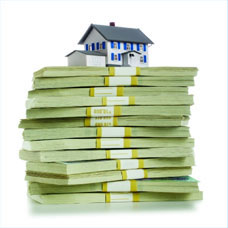 In spite of putting their rates up the big banks and smaller lenders are still willing to offer better-than-advertised rates behind closed doors or via brokers. Here’s what you need to know and do to get a winning rate.
In spite of putting their rates up the big banks and smaller lenders are still willing to offer better-than-advertised rates behind closed doors or via brokers. Here’s what you need to know and do to get a winning rate.
Acting head of corporate affairs for Mortgage Choice, Belinda Williamson says there continues to be “a significant amount of competition for business in the home loan market and lenders are in certain circumstances prepared to negotiate beyond their advertised rates”.
“The opportunity for negotiation depends mainly on loan size, but consideration is also given to perceived risk (how much of the value of the property you are borrowing), and the number of products you take out with the lender, such as credit cards, transactional accounts, etc,” Williamson says.
“Our tip is to talk to a mortgage broker who has the relationships with lenders and can liaise with them on your behalf to ensure you are getting the best home loan deal for your individual circumstances and needs,” she says.
Top tips for getting a discounted loan
In other words if you want to be in the running to “talk down” a bank’s advertised mortgage rate you need to:
1. Shop around for the very best deal available or find a broker who can help you with your search. The best place to look for hot home loan deals is our Your Mortgage website.
2. Borrow a relatively large amount of money. Consider going for a higher amount if it pushes you over the line to getting a cheaper rate. You can then immediately feed that excess money back into your mortgage to reduce the principal and pay less interest.
HOT TIP: Ask your broker or the lender if they offer lower rates for higher loan amounts. Once you know what the cut-off points are you can crunch the numbers to determine whether a higher loan amount would work for you.
3. Have a clean credit history: lenders will offer their best deals to customers who have a proven track record of successful loan repayment
HOT TIP: How long is it since you took a look at your credit record? If you’re planning to look for a home loan or refinance any time soon request a copy of your credit file and clean it up if you find mistakes. Also reduce the number of credit applications you do, and that includes contracts with telcos
4. Save the biggest deposit possible: lenders also want to see a strong history of savings before they will do any special deals. The bigger your deposit the better and the more of it that is in the form of genuine savings, the better. Don’t expect a discount rate if you need to borrow more than 90% of the property’s value.
HOT TIP: If you are a few years away from applying for a mortgage consider opening a First Home Saver account. You’ll need to save at least $1,000 each year for four financial years and the government will also make contributions. It’s a good way to demonstrate a serious commitment to saving
4. Buy mainstream properties in strong locations: Lenders will also assess the resale potential of any property they lend against. This is their way of ensuring they could offload the home quickly if they needed to sell in the event you were to default on the loan. That means properties in cities and major regional centres are going to be seen as more favourable for competitive rates than those in remote areas or with unusual features that may not be as easy to resell.
5. Loyalty does pay: if you are willing to take on a professional package with a bank that includes a credit card, transaction account and other features, you are more likely to get a better rate than their advertised standard variable.
HOT TIP: shop around before you settle for a pro-pack though. Check whether non-bank lenders have better rates than pro-pack rates without tying you up to other products. Check the other products that come with the package are actually what you need and remember most pro-packs come with annual or monthly fees. Ask for these to be discounted or waived altogether as part of your negotiations. You never know unless you try.
Collections: Mortgage News


Share